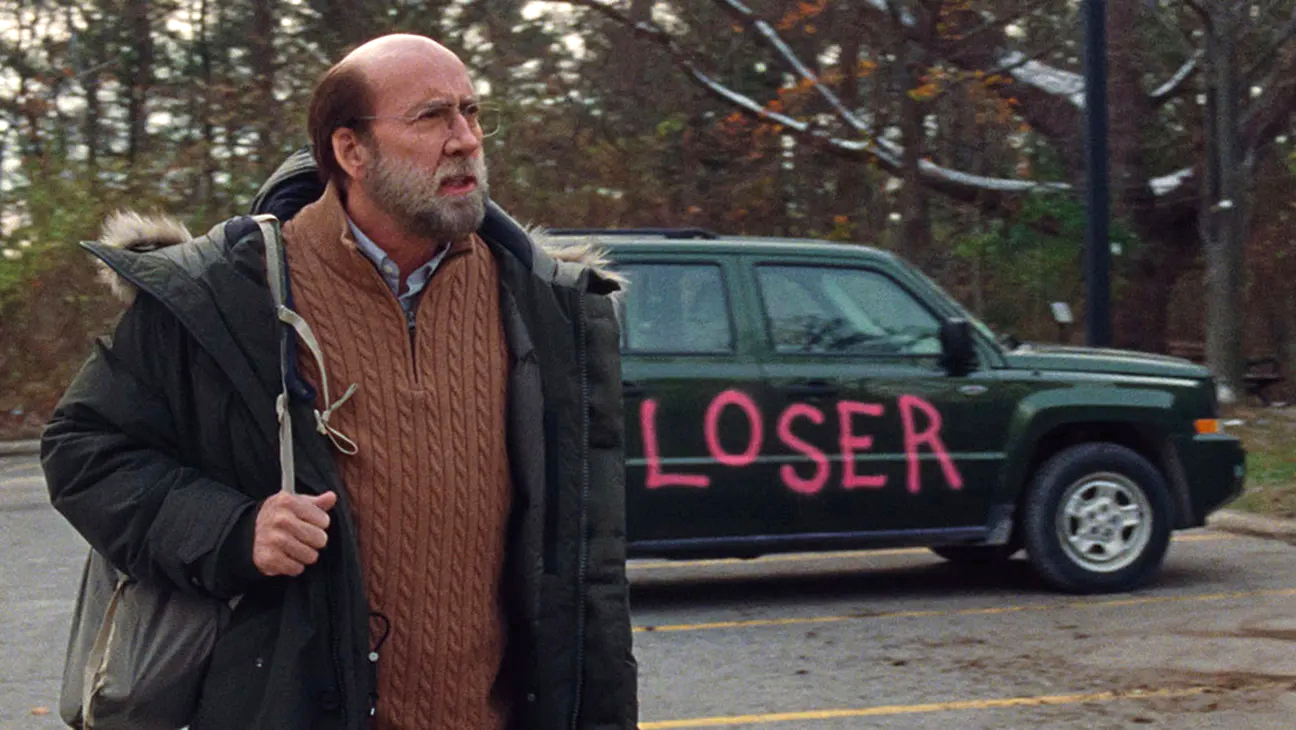
“It wasn’t what I signed up for when I decided to be a screen actor in the early ‘80s,” Cage contends. “We didn’t have the internet, and so my dream to try to embrace this Golden Age style of film performance suddenly became memeified. I felt I had no control, and it kept growing. So when I read Dream Scenario, I said to myself, ‘I think I understand how Paul feels.’”
That might likewise be due to Borgli’s second feature working as a brutally mean-spirited metaphor for fame in the 21st century. At a moment’s notice, you can become famous for doing absolutely nothing. You can also fall just as fast without any discernible rhyme or reason. This too is a phenomenon Cage is aware of, as the Oscar-winning actor has enjoyed the ephemeral attention we call fame for more than 30 years. He also is acutely aware of why it could become so seductive for a nebbish everyman like Paul Matthews.
Says Cage, “I always liken fame to the experience of gambling, which I don’t do, but [at least once] I was at a roulette wheel. When you win, you feel like you’re on top of the world, but the feelings of losing are even more profound than the feelings of winning. I think that’s why gamblers get addicted. They want to feel something and they’re feeling the loss more than anything, and that keeps them going on some very perverse level. Fame is not unlike that. When your fame turns on you, the feelings of loss and the feelings of alienation are more profound than the feelings of being successful in a film performance.”
Cage relates quite a bit to Matthews, even though the real thought of folks dreaming about him induces a shudder. “It’s a little too spooky for me,” he admits. Nonetheless, creating the Dream Scenario protagonist was one of the more personal acting challenges in Cage’s career. Along with his recent turn in director Michael Sarnoski’s Pig, the actor suggests Dream Scenario is one of the biggest departures in his career. With Professor Matthews, he is forsaking that “Golden Age” style of film performance that revved his engines for so many years.
“[Pig and Dream Scenario] are very personal performances,” Cage says, “and I was really only thinking about my own emotional library and how to pull from it and apply it towards the physical image and the vocal sound of Paul Matthews.” The performance is still a distinctly Cagian creation, with Paul expressing a certain manic energy as he learns folks are dreaming about him, and a more profound despair when those dreams turn to nightmares. But for Cage that was about giving his toolset over to Borgli.
“[Borgli] knew what he was doing from the get go, and the best thing I could do as his actor was to give myself over to his direction,” Cage notes. “I often say, ‘Well, here’s the remote control car and the controls. You push the buttons, and I’m going.’”